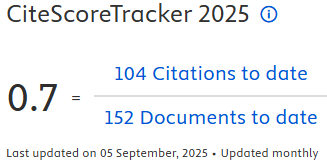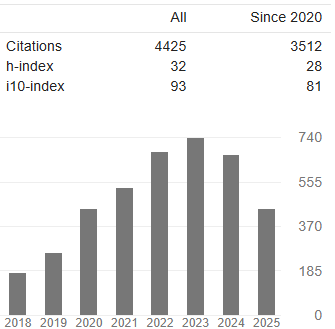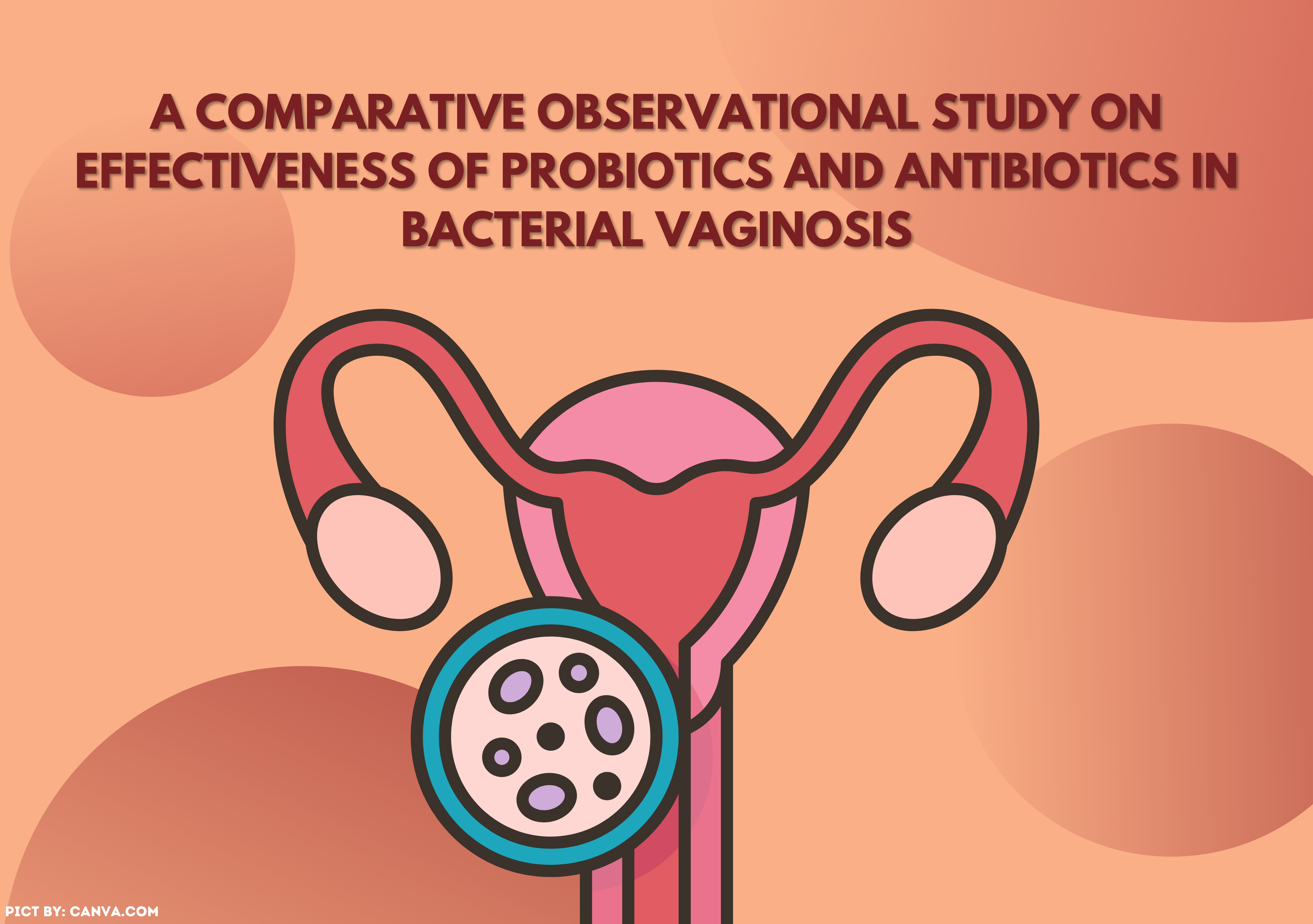DETERMINANTS OF STIGMA ON PEOPLE LIVING WITH HIV AND AIDS IN INDONESIA (EVIDENCE FROM 2017 IDHS DATA)

Introduction: People living with human immunodeficiency virus (HIV) and acquired immunodeficiency syndrome (AIDS) face bio-psycho-socio-spiritual problems. The stigma against PLWHA exists in more than 65 countries. Indonesia occupied the highest position in the Pacific with a case rate of 62.8%. Stigma has contributed to the failure of HIV and AIDS epidemic-control programs. Aims: To determine the stigma against PLWHA in Indonesia. Method: This study used the 2017 IDHS dataset with a cross-sectional design. The study sample comprised 47.233 people. The variables studied included age, sex, marital status, educational level, economic status, employment status, mass media exposure, type of residence, knowledge about HIV and AIDS, and stigma against PLWHA. The data analysis technique was the chi-square test and logistic regression with α 0.05 (5%). Result: Factors that determined the stigma of PLWHA include age 15-19 (OR 1.611), age 20-24 (OR 1.438), age 25-29 (OR 1.131), age 30-34 (OR 0.993), male gender (OR 0.834), married status (OR 1.416), educational level less (1.247), very poor economic status (OR 1.503), poor (OR, 1.134), medium (OR 1.080), rich (OR 0.972), not working ( OR 1.065), and lack of knowledge (OR 2.588). Conclusion: person aged 15-24 years, female, single, have low education, poorest/poor, do ot have a job, and have a low level of knowledge about HIV and AIDS are very likely to be stigmatized towards PLWHA. Education related to HIV and AIDS, especially how HIV and AIDS are transmitted, still needs to be improved so that it can reach all levels in society
Aminuddin, A. & Kurniawati, H. F. (2017) "Hubungan Stigma Terhadap Odha Dengan Minat Melakukan VCT Pada Ibu Rumah Tangga di RW 14 Sosmenduran Gedong Tengen Yogyakarta,” Naskah Publikasi.
Baroya, N. (2017) "Prediktor sikap stigma dan diskriminasi terhadap orang dengan HIV dan AIDS (ODHA) di Kabupaten Jember,” IKESMA, 13(2), pp. 117–127. https://doi.org/10.19184/ikesma.v13i2.7032
Damalita, A. F. (2014) "Analisis karakteristik dan faktor-faktor yang mempengaruhi stigma pengidap HIV (ODHIV) di Kota Yogyakarta naskah,” Naskah Publikasi, pp. 1–7.
Dharmawati, I. G. A. A. & Wirata, I. N. (2016) "Hubungan Tingkat Pendidikan, Umur, Dan Masa Kerja Dengan Tingkat Pengetahuan Kesehatan Gigi Dan Mulut Pada Guru Penjaskes Sd Di Kecamatan Tampak Siring Gianyar,” Jurnal Kesehatan Gigi, 4(1), pp. 1–5.
Dudi, A. M., Mulyanti, S. & Nuraeni, N. (2019) "Faktor-Faktor Yang Berhubungan Dengan Pemanfaatan Voluntary Counselling and Testing (VCT) Pada Ibu Hamil di Wilayah Kerja Puskesmas Karanganyar Kota Tasikmalaya,” Jurnal Medika Cendikia, 6(01), pp. 33–43. https://doi.org/10.33482/medika.v6i01.100
Grieb, S. M. D. et al. (2017) "HIV-Related Stigma Among Spanish-speaking Latinos in an Emerging Immigrant Receiving City,” Journal of Immigrant and Minority Health, 19(4), pp. 868–875. https://doi.org/10.1007/s10903-016-0497-9
Hartini, N. et al. (2018) "Stigma toward people with mental health problems in Indonesia,” Psychology Research and Behavior Management, Volume 11, pp. 535–541. https://doi.org/10.2147/PRBM.S175251
Hati, K., Shaluhiyah, Z. & Suryoputro, A. (2017) "Stigma Masyarakat Terhadap ODHA Di Kota Kupang Provinsi NTT,” Jurnal Promosi Kesehatan Indonesia, 12(1), pp. 62–77. https://doi.org/10.14710/jpki.12.1.62-77
Kane, J. C. et al. (2019) "A scoping review of health-related stigma outcomes for high-burden diseases in low- and middle-income countries,” BMC Medicine, 17(1), pp. 1–40. https://doi.org/10.1186/s12916-019-1250-8.
Kelly, J. D., Weiser, S. D. & Tsai, A. C. (2016) "Proximate Context of HIV Stigma and Its Association with HIV Testing in Sierra Leone: A Population-Based Study,” AIDS and Behavior, 20(1), pp. 65–70. https://doi.org/10.1007/s10461-015-1035-9
Ministry of Health (2019) Laporan Perkembangan HIV-AIDS dan Infeksi Menular Seksual (IMS) Triwulan II Tahun 2019. Jakarta: Direktorat Jenderal Pencegahan Dan Pengendalian Penyakit.
Li, Xin et al. (2017) "Factors associated with stigma attitude towards people living with HIV among general individuals in Heilongjiang, Northeast China,” BMC Infectious Diseases, 17(1), p. 154. https://doi.org/10.1186/s12879-017-2216-0.
Li, Z. et al. (2018) "HIV-related stigma among people living with HIV/AIDS in rural Central China,” BMC Health Services Research, 18(1), p. 453. https://doi.org/10.1186/s12913-018-3245-0
Lokko, H. N. & Stone, V. E. (2016) "Stigma and Prejudice in Patients with HIV/AIDS,” in Parekh, R. and Childs, E. W. (eds.) Stigma and Prejudice. Cham: Springer International Publishing, pp. 167–182. https://doi.org/10.1007/978-3-319-27580-2_10
Maharani, F. (2017) "Faktor -faktor yang berhubungan dengan stigma terhadap orang dengan HIV dan AIDS (ODHA),” Jurnal Endurance, 2(2), pp. 158–167. https://doi.org/10.22216/jen.v2i2.1300
Mateveke, K. et al. (2016) "Is socio-economic status a determinant of HIV-related stigma attitudes in Zimbabwe? Findings from Project Accept,” Journal of Public Health in Africa, 7(1), pp. 6–10. https://doi.org/10.4081/jphia.2016.533
Mawarni, M. A., Ismarwati and Indriani (2017) "Analisis faktor yang berhubungan dengan stigma pada orang dengan HIV (ODHIV) di Kota Yogyakarta,” Naskah Publikasi, pp. 3–19.
Pohlan, L. (2019) "Unemployment and social exclusion,” Journal of Economic Behavior & Organization, 164, pp. 273–299. https://doi.org/10.1016/j.jebo.2019.06.006
Sari, E. P. & Yovsyah (2014) "Determinan yang mempengaruhi stigma terhadap orang dengan HIV/AIDS (ODHA) pada wanita pernah kawin usia 15-49 tahun di Indonesia,” Naskah Publikasi, pp. 1–19.
Situmeang, B., Syarif, S. & Mahkota, R. (2017) "Hubungan Pengetahuan HIV/AIDS dengan Stigma terhadap Orang dengan HIV/AIDS di Kalangan Remaja 15-19 Tahun di Indonesia (Analisis Data SDKI Tahun 2012),” Jurnal Epidemiologi Kesehatan Indonesia, 1(2), pp. 1–40. https://doi.org/10.7454/epidkes.v1i2.1803
Solanke, I. (2017) Discrimination as Stigma A Theory of Anti-discrimination Law. USA: Hart Publishing.
Stringer, K. L. et al. (2016) "HIV-Related Stigma Among Healthcare Providers in the Deep South,” AIDS and Behavior, 20(1), pp. 115–125. https://doi.org/10.1007/s10461-015-1256-y
Urifah, S. (2017) "Pengetahuan dan stigma terhadap pasien HIV/AIDS di lingkungan kesehatan, Indonesia,” The Indonesian Journal Of Health Science, 8(2), pp. 199–207. doi: 10.32528/the.v8i2.874.
Vorasane, S. et al. (2017) "An investigation of stigmatizing attitudes towards people living with HIV/AIDS by doctors and nurses in Vientiane, Lao PDR,” BMC Health Services Research, 17(1), p. 125. https://doi.org/10.1186/s12913-017-2068-8
World Health Organization. Mental health Problems: The Undefined and Hidden Burden. Geneva: WHO; 2001.
Widsono, A.F. & Nurfadhilah, N. (2020) "Pemanfaatan voluntary counseling and testing (VCT) pada laki-laki yang berhubungan seks dengan laki-laki (LSL) di Jakarta tahun 2019,” Media Komunikasi Gender, 16(1), pp. 56–65. doi: 10.15408/harkat.v16i1.14783.
Copyright (c) 2023 The Indonesian Journal of Public Health

This work is licensed under a Creative Commons Attribution-NonCommercial-ShareAlike 4.0 International License.
- The authors agree to transfer the transfer copyright of the article to The Indonesian Journal of Public Health effective if and when the paper is accepted for publication.
- Authors and other parties are bound to the Creative Commons Attribution-NonCommercial-ShareAlike 4.0 International License for the published articles, legal formal aspect of journal publication accessibility refers to Creative Commons Attribution-NonCommercial-ShareAlike 4.0 International License (CC BY-NC-SA), implies that:
- Attribution ” You must give appropriate credit, provide a link to the license, and indicate if changes were made. You may do so in any reasonable manner, but not in any way that suggests the licensor endorses you or your use.
- NonCommercial ” You may not use the material for commercial purposes.
- ShareAlike ” If you remix, transform, or build upon the material, you must distribute your contributions under the same license as the original.































